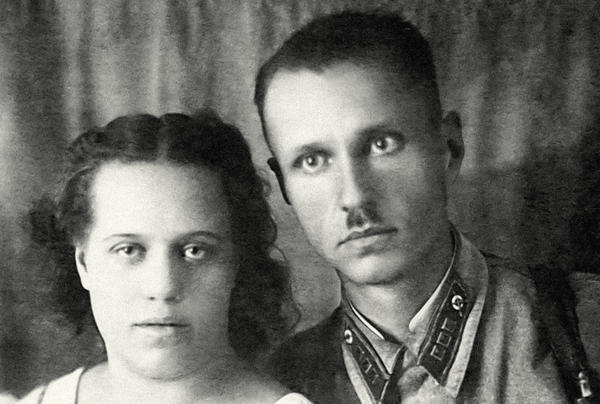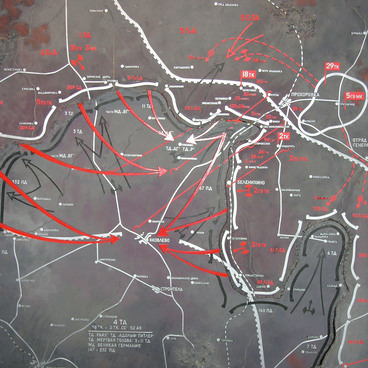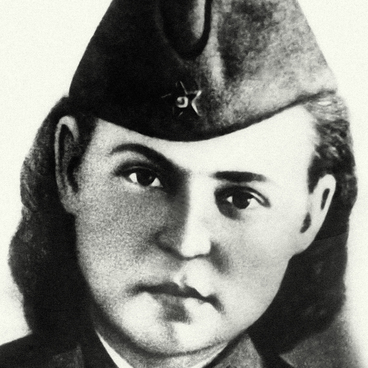Sergey Mikhailovich Izvekov came to life in Maloyaroslavets uyezd in Kaluga governorate in the family of a mill-hand Mikhail Karpovich Izvekov in July 1910. He found religion thanks to his mother, Pelagia Afanasievna. Together, they went on pilgrimage tours visiting the surviving monkeries.
Upon taking qualifications, the young man chose monkhood. He went to Sarov, desirous of becoming a novice there, but the elders sent him to Moscow. His spiritual formation started in the Candlemas Virgin Monastery in Bolshaya Lubyanka: he became a novice wearing a frock and klobuk and got a new name, Platon. Soon, in one of the priories of the The Holy Trinity-St. Sergius Lavra, he became a monk and was renamed in honor of Venerable Pimen the Great. Soon, his holiness Pimen became celibate deacon and later – hieromonk, as he became entitled to celebrate.
In defiance of his order, the young monk was drafted to the army. He saw duty in sabres off Vitebsk in Byelorussia. Back in Moscow, Pimen got on with his monastic life, although it was dangerous to profess. In 1937, he was sentenced to enduring the punishment in Dmitrov camp. Next to other convicts, the hieromonk was building the Moscow-Volga canal. After the end of construction, the camp was shut down and the majority of releasees were sent fleeing into exile.
From the beginning of the Great Patriotic War, Sergey Mikhailovich was drafted to the Red Army. He rose to the rank of Senior Lieutenant during the war. The subsequent fate of the would-be patriarch was full of unexplained twists and turns that occurred at the end of the war: in 1943, he missed in action. Some say that Pimen was taking treatment for tuberculosis at a hospital; others accuse him of malicious desertion. One thing is sure: Sergey Mikhailovich Izvekov was reconvicted and sent to the Vorkuta-Pechora camp (Vorkutlag).
Being pardoned and walking free in the fall of 1945, he did not go to Moscow but headed for Murom, a small town in Vladimir region, where he was in holy orders at the only functioning Annunciation Church of the shut-down Annunciation Virgin monastery. Here he cultivated close links with the nunnery of the driven-out cell of Diveyevo who were camping out at hand.
During the years of hermitage, Pimen used to be in holy orders in a great many dioceses and became metropolitan. In 1971, the Russian Church council voted him into Patriarch of Moscow and All Russia.
Upon taking qualifications, the young man chose monkhood. He went to Sarov, desirous of becoming a novice there, but the elders sent him to Moscow. His spiritual formation started in the Candlemas Virgin Monastery in Bolshaya Lubyanka: he became a novice wearing a frock and klobuk and got a new name, Platon. Soon, in one of the priories of the The Holy Trinity-St. Sergius Lavra, he became a monk and was renamed in honor of Venerable Pimen the Great. Soon, his holiness Pimen became celibate deacon and later – hieromonk, as he became entitled to celebrate.
In defiance of his order, the young monk was drafted to the army. He saw duty in sabres off Vitebsk in Byelorussia. Back in Moscow, Pimen got on with his monastic life, although it was dangerous to profess. In 1937, he was sentenced to enduring the punishment in Dmitrov camp. Next to other convicts, the hieromonk was building the Moscow-Volga canal. After the end of construction, the camp was shut down and the majority of releasees were sent fleeing into exile.
From the beginning of the Great Patriotic War, Sergey Mikhailovich was drafted to the Red Army. He rose to the rank of Senior Lieutenant during the war. The subsequent fate of the would-be patriarch was full of unexplained twists and turns that occurred at the end of the war: in 1943, he missed in action. Some say that Pimen was taking treatment for tuberculosis at a hospital; others accuse him of malicious desertion. One thing is sure: Sergey Mikhailovich Izvekov was reconvicted and sent to the Vorkuta-Pechora camp (Vorkutlag).
Being pardoned and walking free in the fall of 1945, he did not go to Moscow but headed for Murom, a small town in Vladimir region, where he was in holy orders at the only functioning Annunciation Church of the shut-down Annunciation Virgin monastery. Here he cultivated close links with the nunnery of the driven-out cell of Diveyevo who were camping out at hand.
During the years of hermitage, Pimen used to be in holy orders in a great many dioceses and became metropolitan. In 1971, the Russian Church council voted him into Patriarch of Moscow and All Russia.



